
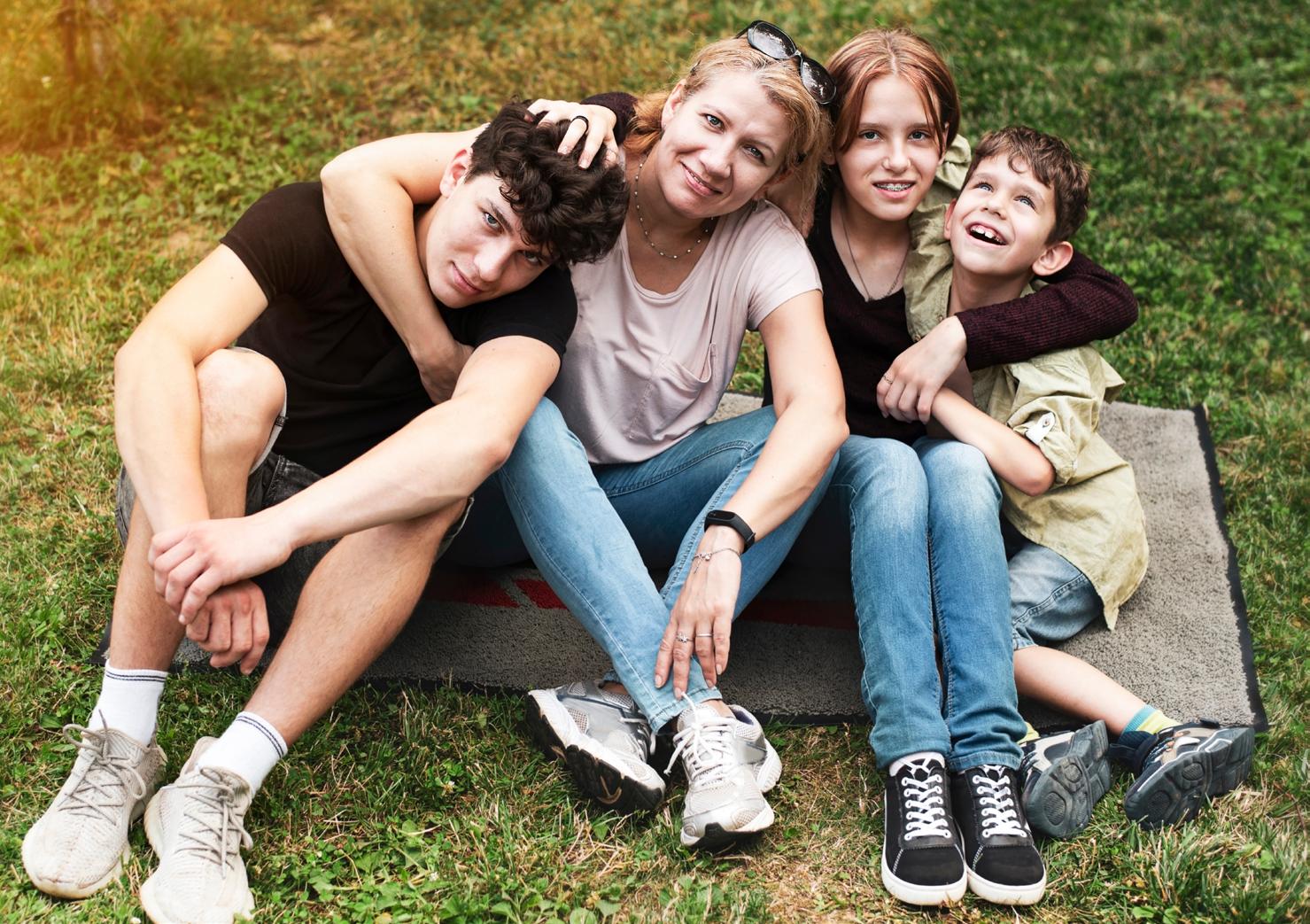



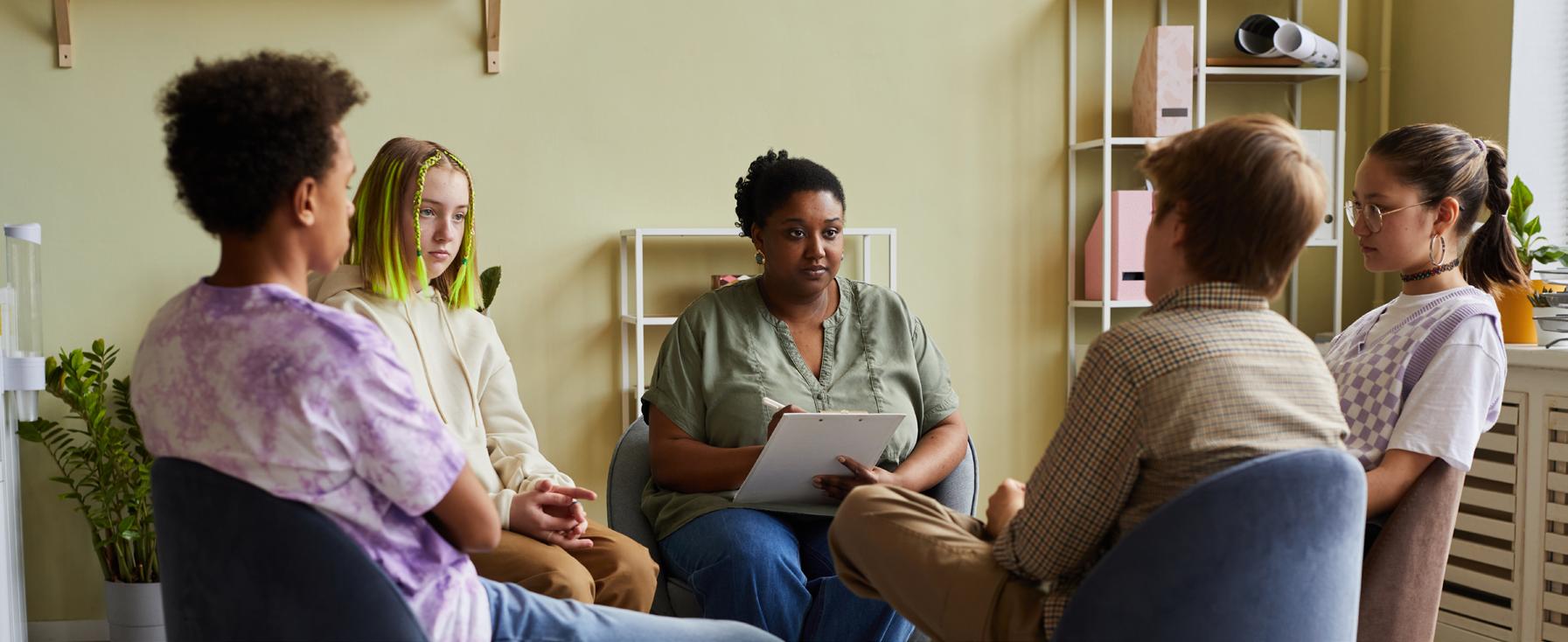

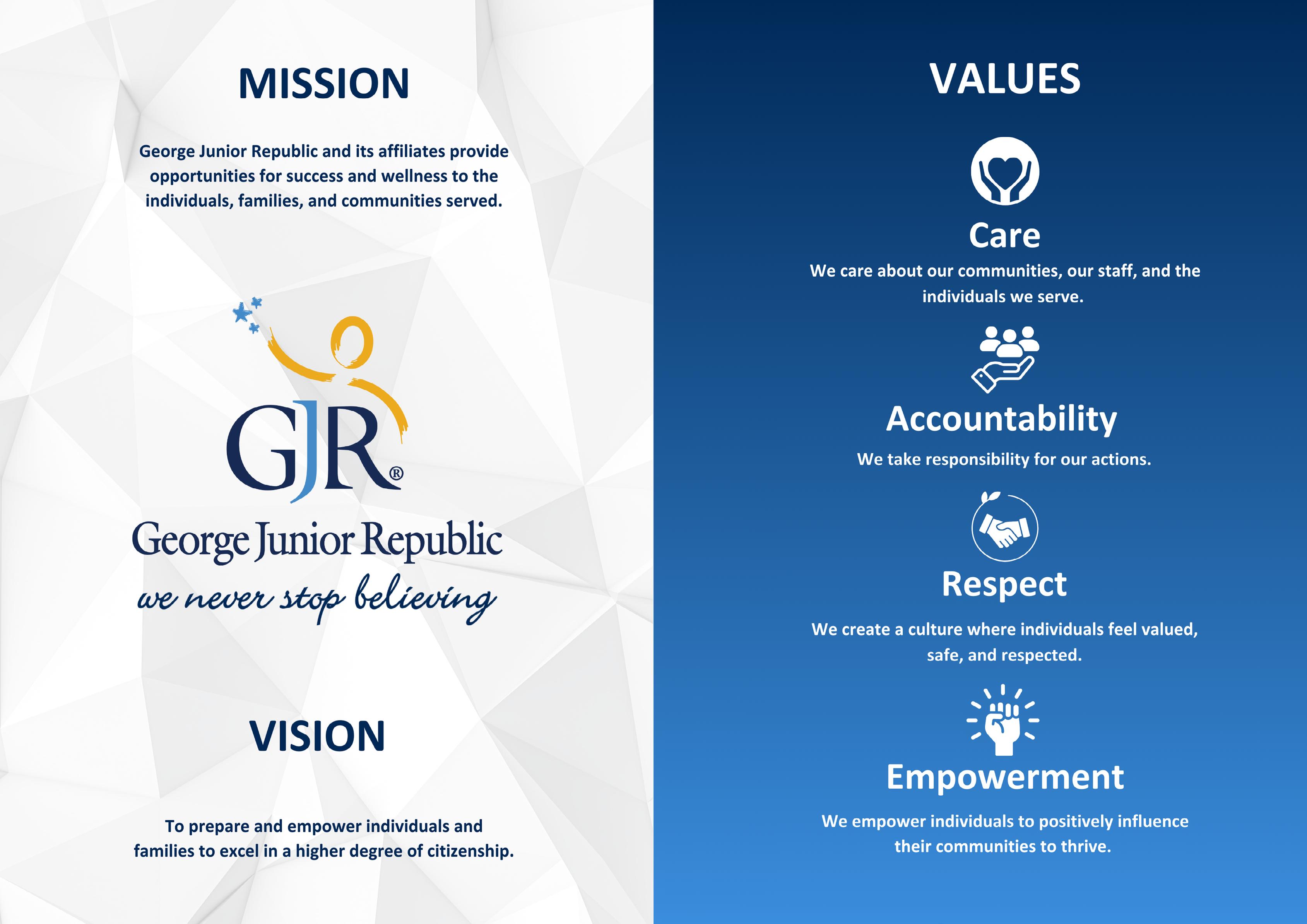












As we reflect on another year of growth, transformation, and ongoing commitment, it is with great pride that I share our renewed mission, vision, and values—cornerstones that will guide George Junior Republic and Affiliates into the future.
Our mission remains steadfast: George Junior Republic and its affiliates provide opportunities for success and wellness to the individuals, families, and communities we serve.
Our vision is clear: To prepare and empower individuals and families to excel in a higher degree of citizenship. We are more than an organization; we are a catalyst for change, ensuring that everyone is valued, heard, and provided with the resources necessary to build a brighter future and participate in our communities.
Our values define who we are and can be observed day in and day out by the CARE displayed by our staff and supporters:
CARE – We care about our communities, our staff, and the individuals we serve.
ACCOUNTABILITY – We take responsibility for our actions.
RESPECT – We create a culture where individuals feel valued, safe, and respected.
EMPOWERMENT – We empower individuals to positively influence their communities to thrive.
And through all of this, one truth remains constant: We never stop believing. These words are more than a tagline—they are a promise. A promise that we will continue to uplift, support, and stand beside those in need; and they reflect our confidence in the resilience and potential of the people we serve and the strength of our dedicated staff, supporters, and community.

Together, we forge ahead, united by purpose and driven by the belief that everyone deserves a chance to succeed. Thank you for standing with us on this journey—your support makes all the difference.
Sincerely,

Megan R. Troxell GJR Parent Board Chair

In my 25 years in human services, the focus has often been on service outcomes. Those primarily responsible for the organization achieving these outcomes are the dedicated staff at George Junior Republic. Unfortunately, those who provide these crucial services are often overlooked.
In 2025, we redefined our core principles and values that are now reflected in our new mission, vision, and values statements. Our trauma-informed approach emphasizes the significant impact we can have on the individuals, families, and communities we serve. The hard work of the GJR staff is essential to achieving this mission. With that said, this year, I would like to thank our staff for their life-changing impact on nearly 1,500 children, youth, adults, and families across multiple states.
Services provided include:
• Providing safe places to sleep and assisting with housing
• Addressing food insecurity
• Ensuring school attendance and academic support
• Bridging transportation gaps
• Supporting keeping families together to prevent out-of-home placements and facilitating family visits
• Teaching social skills
• Offering mental health treatment and providing emergency services
• Coordinating with caseworkers and advocacy groups
• Ensuring health and medical care
These services are delivered in various settings, including communities, schools, urban, and rural areas, as well as in residential placement. Without compassionate staff, many individuals would be at risk of falling through the cracks.
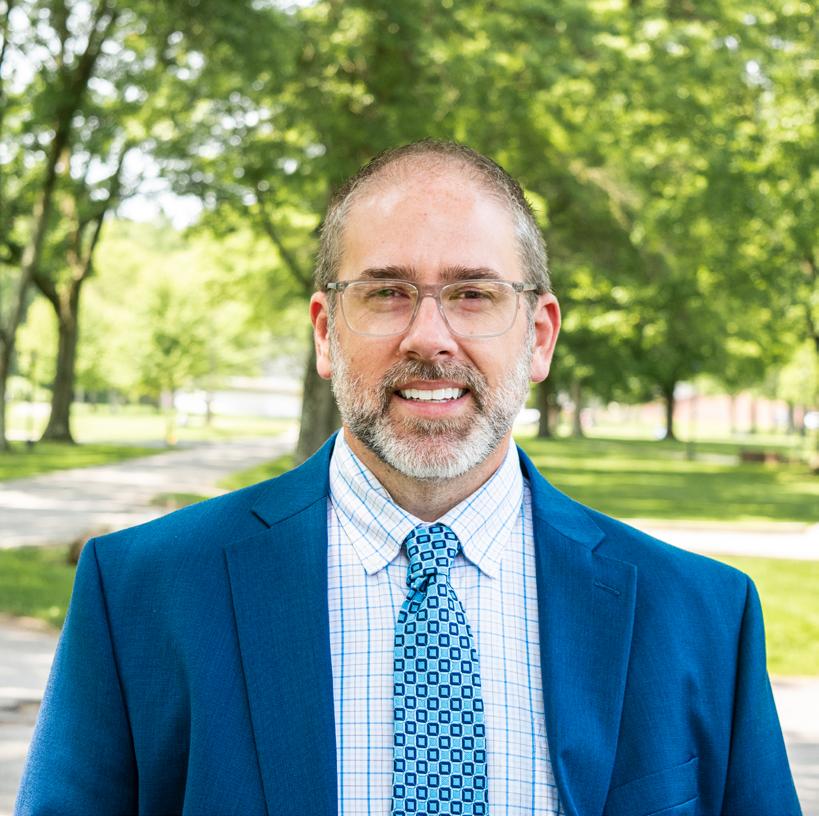
The belief that change is possible, although challenging, drives our staff. Their resilience and dedication affirm our core belief of "We never stop believing!"
Respectfully,
Nathan M. Gressel Chief Executive Officer

This year, GJR in PA took a significant step toward enhancing the quality of care for the youth it serves by facilitating the Children and Residential Experiences (CARE) educator training for a group of agency supervisory staff. Residential managers, campus directors, and campus supervisors participated in an immersive training led by Cornell University, equipping them with research-based strategies to foster a more supportive, structured, and compassionate environment.
CARE is a principle-based program designed to improve residential care practices by focusing on child development and well-being. The six core principles –
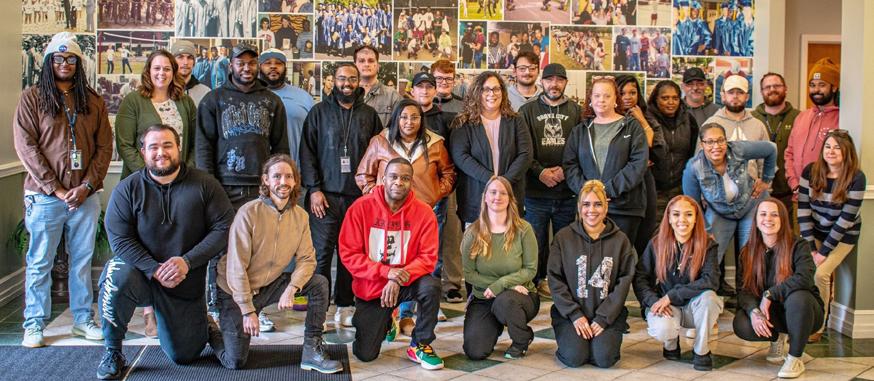

developmentally focused, family involved, relationship based, competence centered, trauma informed, and ecologically oriented – align with GJR in PA’s mission to provide a nurturing and stable foundation for youth.
Developed in 2005 through a partnership between the South Carolina Association of Children's Homes, the Duke Endowment, and the South Carolina Department of Social Services, CARE is recognized as a promising evidence-based model by the California EvidenceBased Clearinghouse for Child Welfare (CEBC).
Studies show implementing CARE practices leads to fewer behavioral incidents, reduced use of restraints,

and stronger relationships between staff and youth. The training was fully funded by generous grants from Rite Aid Healthy Futures, the T. J. Kavanagh Foundation, and the Buhl Regional Health Foundation. By adopting CARE programming, GJR in PA reaffirms its commitment to ensuring staff are well informed about the best practices to guide, support, and uplift the youth it serves.
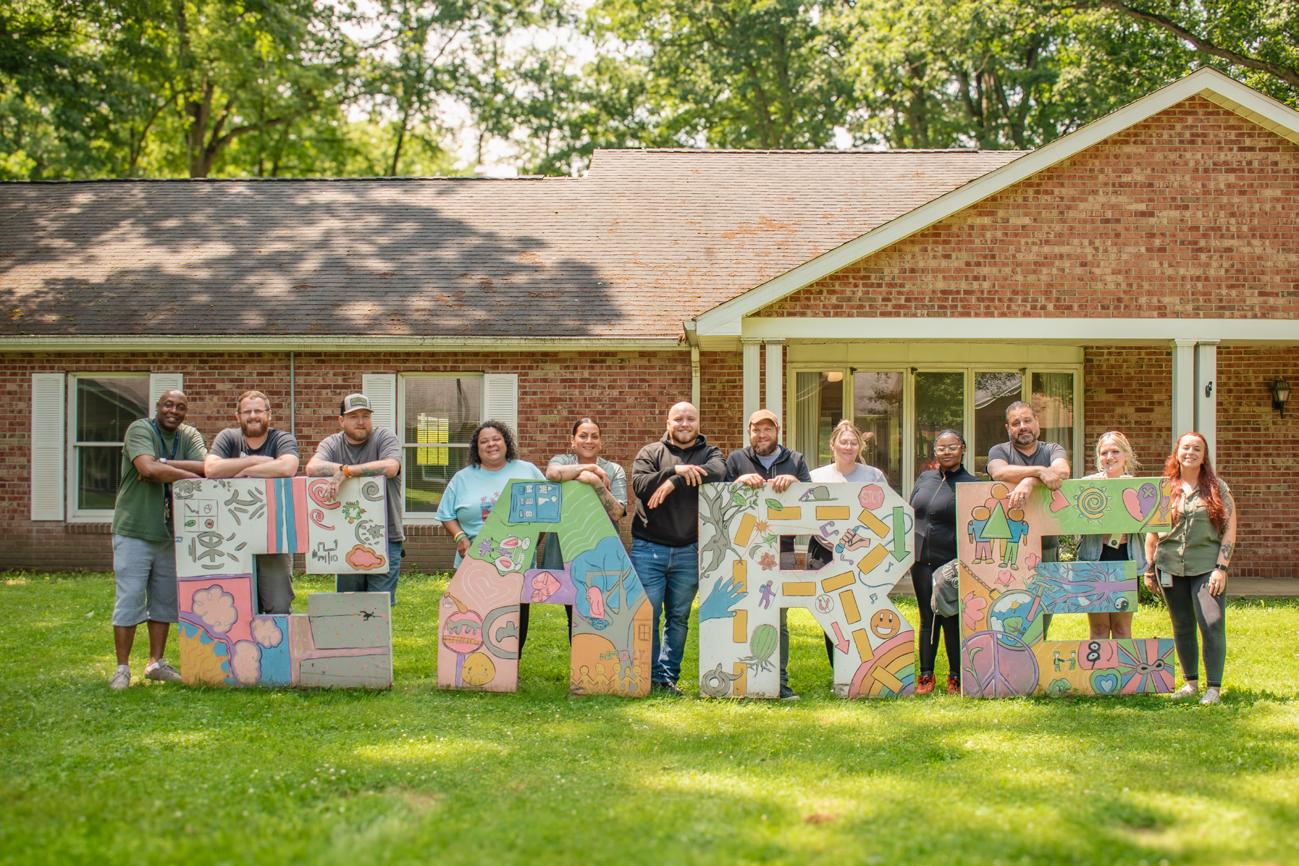
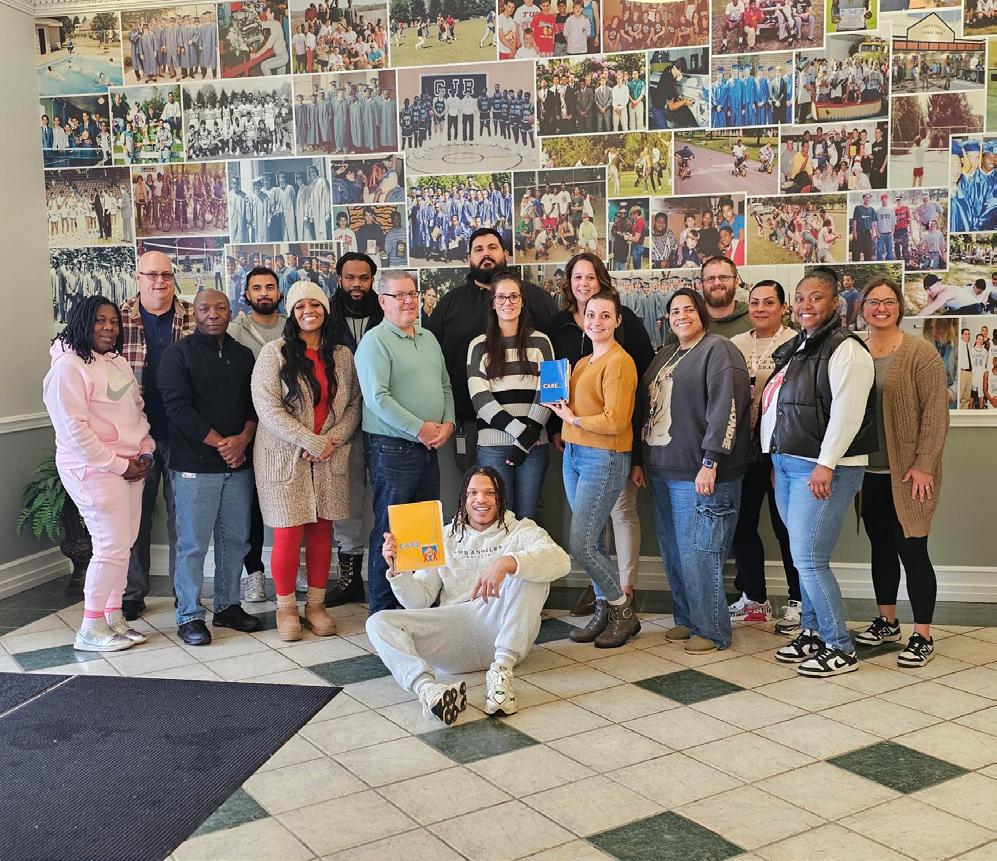

Fiscal year 2024-2025 was a year of renewed momentum and strategic growth for GJR in PA. After several years of sector-wide staffing challenges, GJR in PA reestablished a stable workforce, with 304 full and part-time employees. This renewed staffing capacity enabled the organization to strengthen its traumainformed mission through continued partnership with Cornell University and its Children and Residential Experiences (CARE) program. Multiple grants supported ongoing staff training and campus-wide implementation of the CARE model. Additionally, a technology grant from the Pennsylvania Broadband Development Authority enabled the distribution of high-quality laptops to students, supporting digital literacy and career readiness.
Throughout the year, GJR in PA expanded its portfolio to meet increasing service needs. The Therapeutic Residence for Adolescent Complex Cases (TRACC) program increased capacity to serve youth with complex behavioral health profiles. The Long Term Structured Residence (LTSR) program established new contracts in northeastern Pennsylvania, extending psychiatric rehabilitation and independent living support to adults with serious mental illness in historically underserved regions. The SchoolBased Mental Health initiative also expanded to include additional districts in Mercer County, reflecting growing demand for accessible mental health support in schools.
GJR in PA’s recognized expertise in residential and behavioral health services continued to open new opportunities. Fayette County selected the organization to renovate and operate a secure juvenile detention facility - a publicly funded initiative that underscores public trust in GJR’s leadership and capabilities.
Behind the scenes, the organization is also developing new program models to address emerging behavioral health needs across the Commonwealth, promising a new phase of growth for GJR in PA.

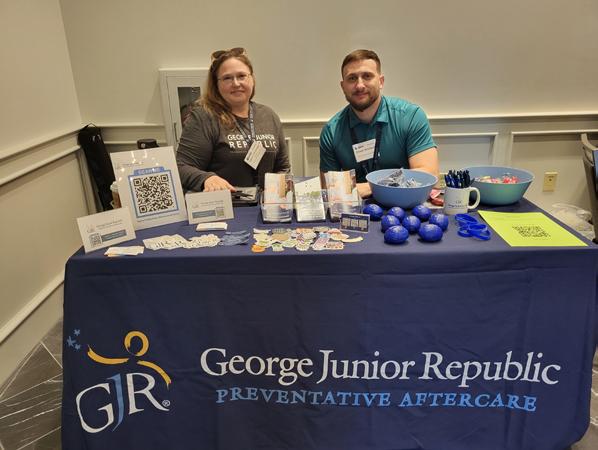
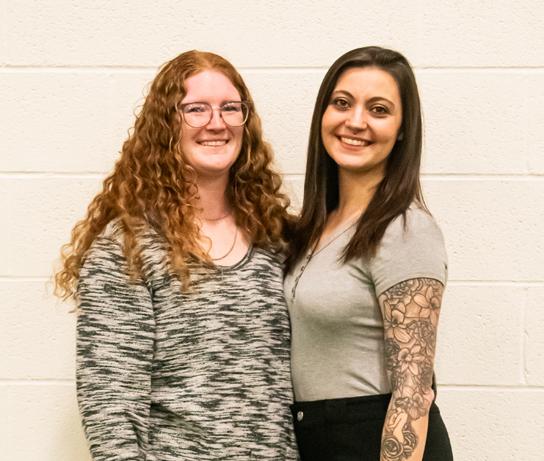
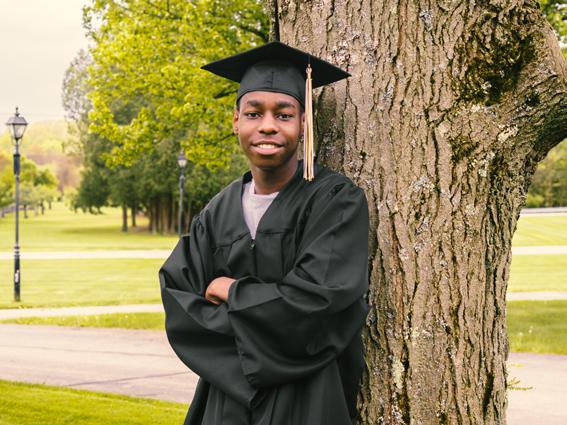
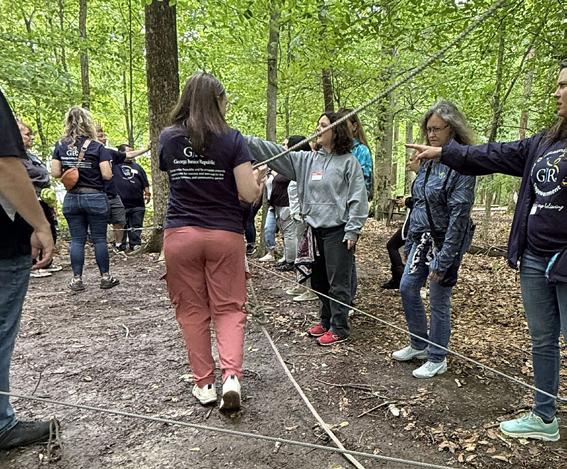
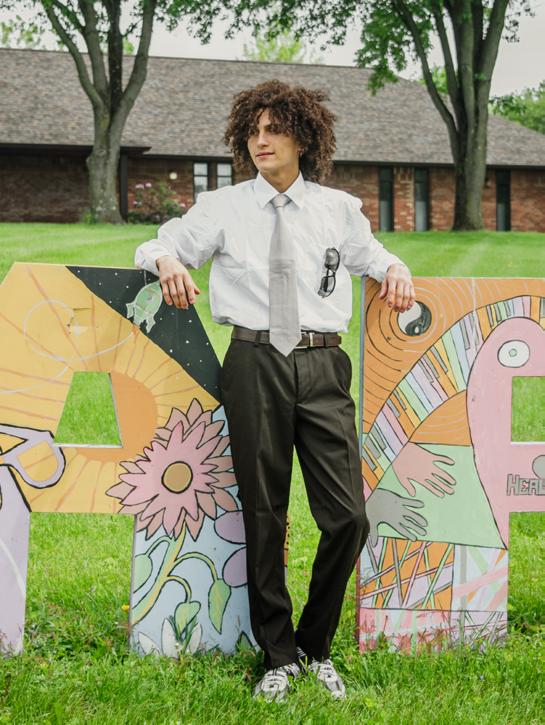


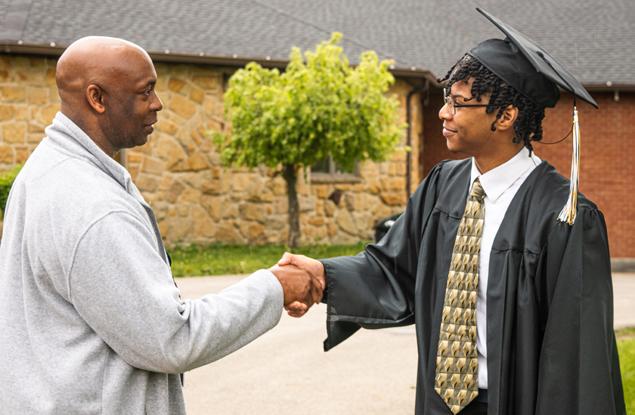



This year marked an exciting addition to GJR in PA’s programming with the introduction of Recreational Therapy.
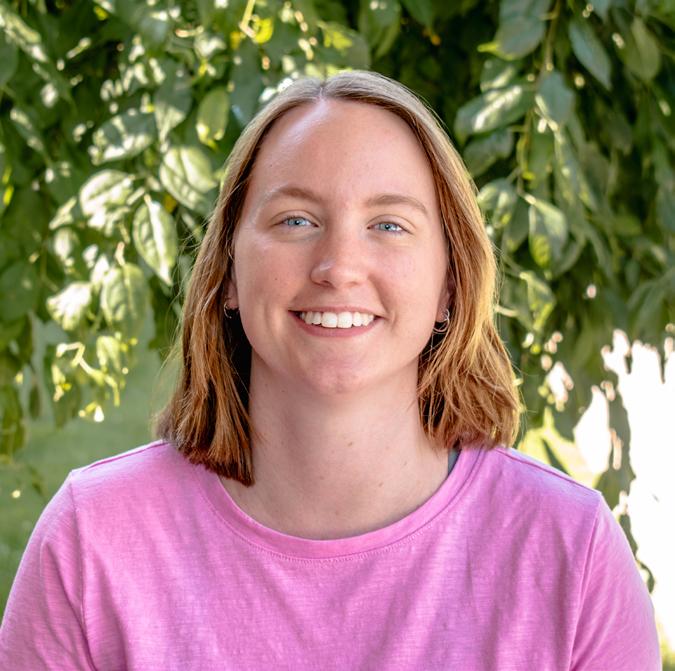
Led by Therapeutic Recreational Program Coordinator Kaitlyn Leamer, this form of therapy is designed to address the unique needs of each individual.

Both the youth and adult programs have incorporated Recreational Therapy into their routines as a valuable part of their programs. Each session encourages movement, engagement, and meaningful discussion, helping participants develop essential life skills. A variety of interactive games have proven particularly impactful in fostering communication, self-regulation, and emotional control. Following each activity, guided discussions allow participants to reflect on the skills they practiced, reinforcing positive behavioral strategies.
To ensure the program’s continued success, feedback surveys are conducted at the end of each cycle. This input allows for adjustments tailored to each group’s evolving needs, ensuring a personalized and practical approach.
As Recreational Therapy continues to grow, its influence on the well-being and development of our youth and adults is undeniable. We look forward to another year of progress, engagement, and positive change through this innovative program.
It follows a structured six-week group cycle, focusing on topics such as impulse control, emotional regulation, healthy coping strategies, and relaxation.


The Jeremiah Sturgeon Chapel stands at the entrance of GJR in PA as a resilient symbol of the Progressive Era’s Junior Republic Movement (1895 - 1912) – a pioneering social reform effort that sought to rehabilitate wayward youth through selfgovernance, honest labor, education, and personal responsibility. Founded in 1909, GJR in PA was the sixth Junior Republic established nationwide and is one of only four surviving locations today.
Constructed in 1914 by the youth residents themselves, the Jeremiah Sturgeon Chapel was among the earliest non-denominational worship spaces in the United States. It reflected the movement’s revolutionary belief that young people from every background, regardless of economic status, race, or religion, could learn to contribute meaningfully to a democratic society.
Within its walls, generations of young citizens celebrated faith, learned the duties of governance, and elected their leaders, including female citizen presidents by the 1920s.
The Chapel represents the broader mission of the Junior Republic Movement to convey democratic principles not only in theory but also in practice. Its original stained-glass windows, brickwork, rafter-framed roof, and millwork preserve the physical structures built in accordance with the ideals of its founders and early citizens. Despite societal upheavals, including the Great Depression, two world wars, and waves of reform in child welfare, this structure witnessed how GJR in PA adapted while staying true to its mission of developing character and
responsible citizenship among at-risk youth. Beyond worship, the Chapel has served as a gathering place for musical convocations, theatrical performances, community celebrations, graduation ceremonies, and even a makeshift boxing ring in its basement.
Today, the Jeremiah Sturgeon Chapel continues to serve its original purpose as a non-denominational worship space, enduring humbly as a living emblem of a unique American experiment in self-reliance, civic responsibility, and humanitarianism. Its preservation honors a national legacy that believed young people, when entrusted with real responsibility and taught the value of honest labor, could rise above adversity and lead a life of integrity and purpose.
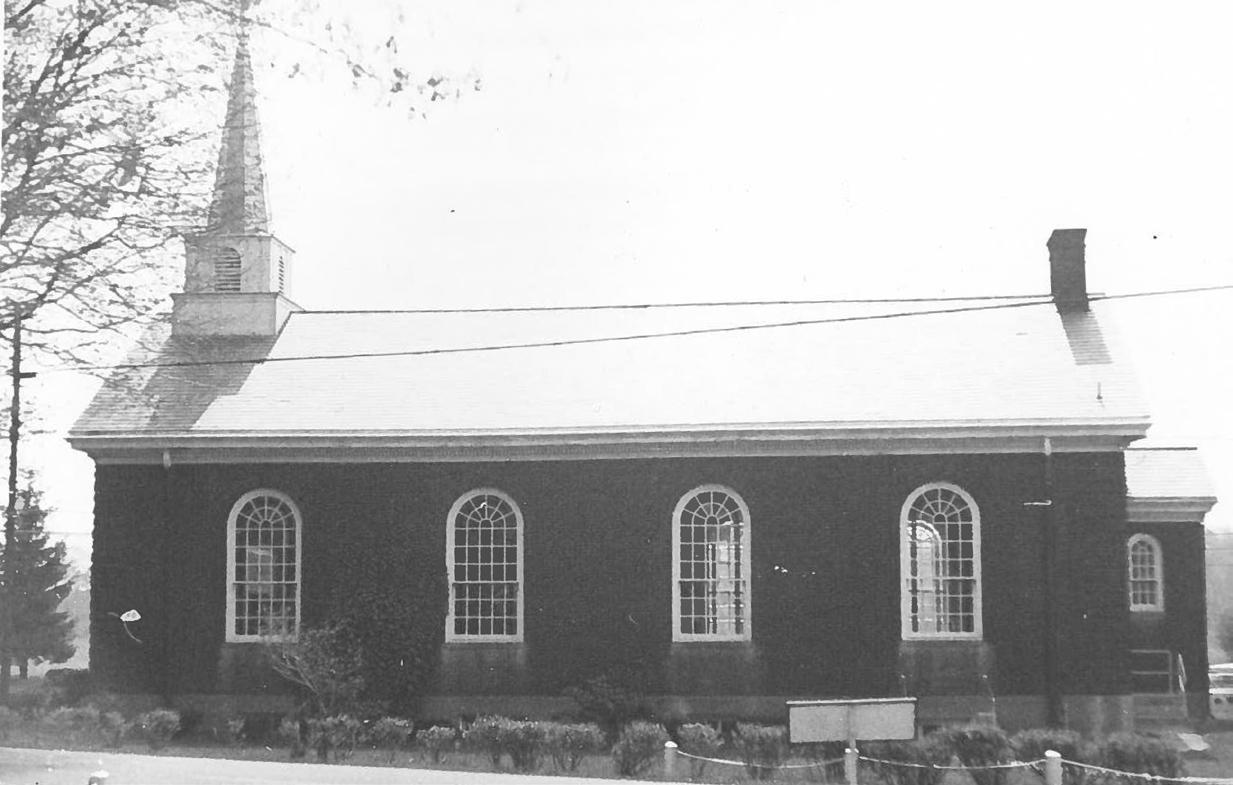
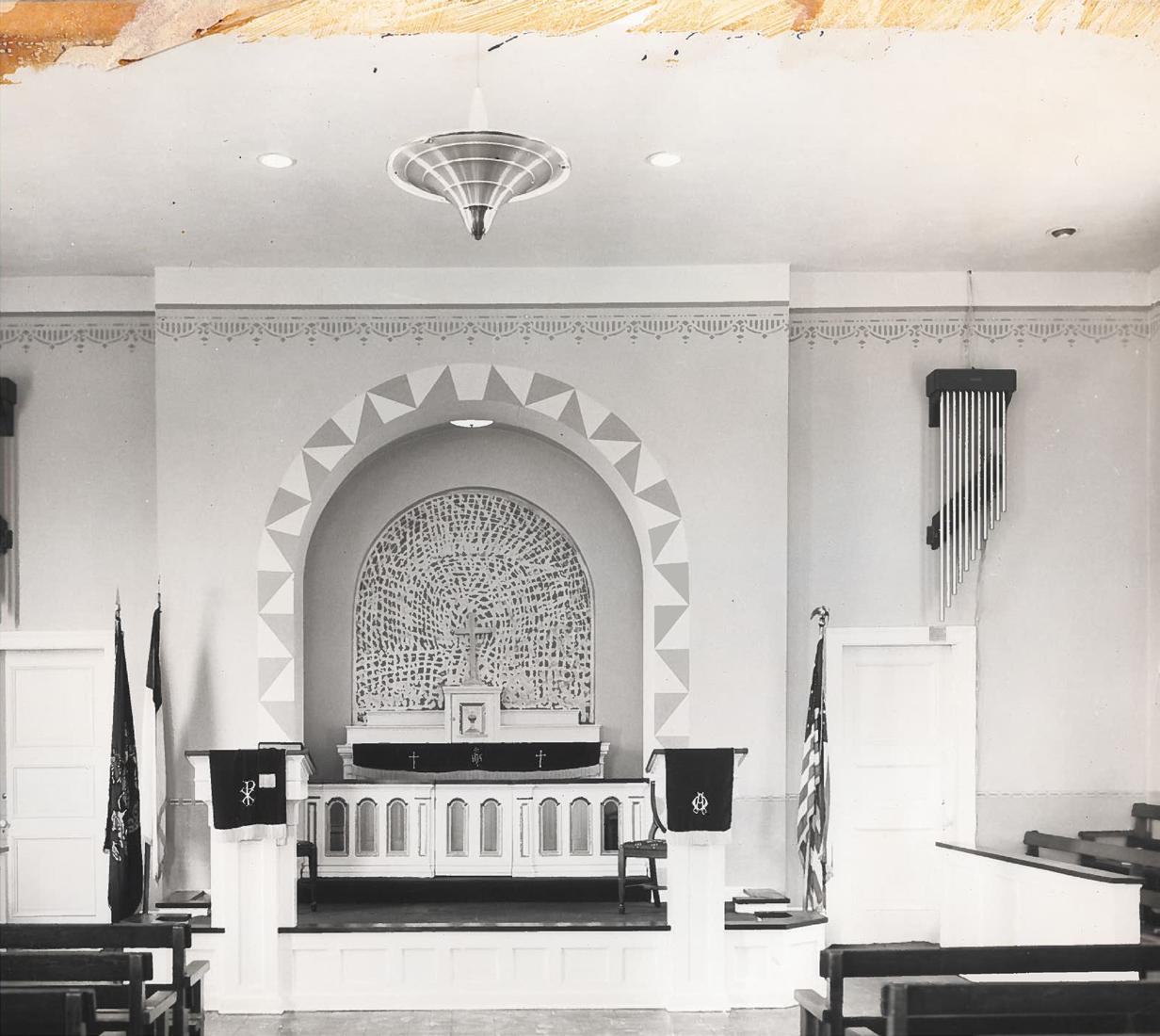


Reading, a simple, everyday activity in many households, is often a novel luxury for youth at GJR in PA, many who come from unstable home environments where access to books and quiet time for reading are nonexistent.
For many, it is within the safe, structured setting of the PA campus that they experience their first meaningful engagement with literature. One alumnus, Kyle Jacobs, who earned postgraduate degrees in technology and education through a combined program between Harvard University and the Massachusetts Institute of Technology, credits his early interest in science to reading Scientific American magazine and corresponding with the publisher while residing at GJR in PA.
Recognizing this gap in reading as a common childhood experience, GJR in PA is committed to promoting recreational reading. These efforts are made possible through the generosity of donors and supporters, most notably, the Church of the Beloved Disciple, which donated over 100 brand-new books for campus-wide youth literacy groups during the 2024 holiday season. Titles were selected collaboratively by staff and youth to ensure they were both age-appropriate and personally meaningful to them.
Thanks to this support, Special Needs 12 launched the “Building Bonds Through Books” Book Club in February 2025. Following a flexible monthly rotation based on

actual reading pace, youth select titles aligned with their interests and treatment goals. Weekly group discussions provide opportunities to analyze texts, share perspectives, and enhance communication skills, thereby reinforcing both educational and therapeutic progress. Completed books are shared with other units to foster a campus-wide culture of reading. The most recent selection, “Product of My Environment” by From Me to You, sparked powerful conversations about gang involvement, substance abuse, personal choices, and consequences.
Book purchases are fully funded through charitable donations and support local economic growth through GJR in PA’s partnership with Bookends, a woman-owned independent bookstore in downtown Grove City.









“Today a reader, tomorrow a leader.” – Margaret Fuller
Interested in helping fund this program? Scan the QR code.
Since joining GJR in PA in September 2024, John Force, LPC, CAADC, has brought a renewed vision and momentum as the director of the Long Term Structured Residence (LTSR) program. With a strong clinical background in trauma and substance use, John transitioned into his role as director with a clear focus of strengthening clinical programming and growing the program’s census.
In just six months, meaningful advancements have been made. Clinically, the program now offers Seeking Safety, an evidence-based group intervention targeting trauma and co-occurring substance use, as well as newly introduced Recreational Therapy to support emotional regulation through movement and play. Staff are actively pursuing Clinical Certified Trauma Professional (CCTP) credentials,
deepening the program’s trauma-informed approach. On-site Narcotics Anonymous meetings and the addition of two certified recovery specialists have further enriched resident support.
Efforts to grow the program’s census have also paid off. Starting with just two residents, strategic outreach and a new contract with Community Care Behavioral Health (CCBH) in the Northwest Central Region have already begun yielding new referrals, expanding the program’s reach and impact.
Thanks to John’s leadership, the LTSR program is well on its way to becoming a regional model for recovery-focused, trauma-informed residential care.
Average Length of Stay 139 Days


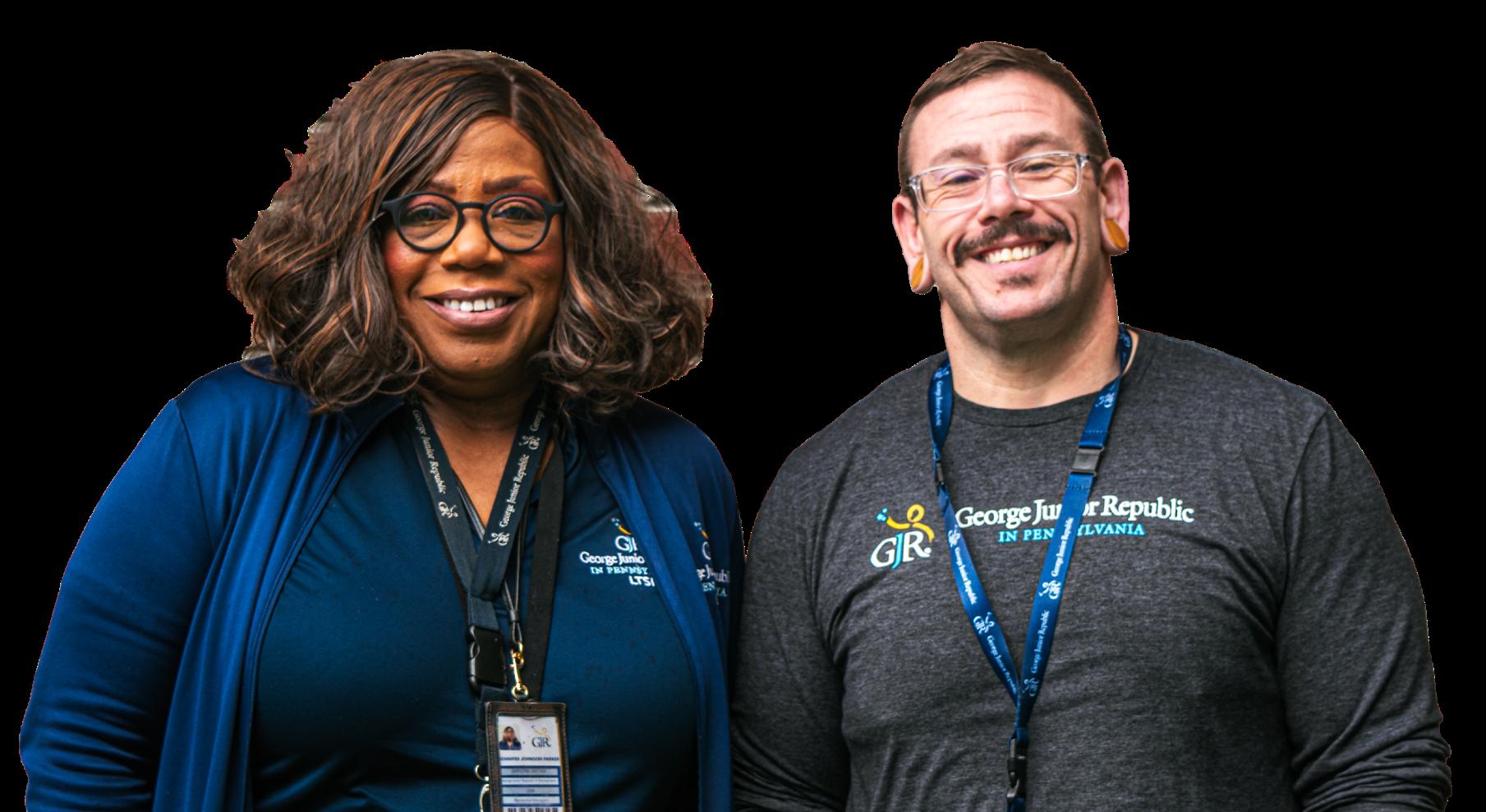


This past year, Preventative Aftercare (PAC) expanded service capacity, strengthened workforce development, and improved outcomes across its programs. Efforts centered on building a resilient, skilled workforce to better serve at-risk children, youth, adults, and families through community-based care across Pennsylvania and Ohio.
Supported by a multi-year grant from The Pew Charitable Trusts, PAC continued statewide training in the Positive Parenting Program (Triple P), equipping staff with evidence-based tools to address parenting skills in at-risk family preservation interventions.
PAC also bolstered its Family-Based Mental Health program in Crawford and Venango counties with a multidisciplinary team of professionals holding master's and bachelor's degrees, who provide
intensive, in-home interventions. In total, 16 youth with complex mental health needs received specific therapeutic interventions through this initiative.
In Westmoreland County, PAC successfully concluded the Restore grant-funded program, serving 31 reentrant clients. Collectively, participants completed nearly 1,500 hours of community service and repaid over $22,000 in restitution, beautifying public spaces and strengthening community ties through restorative justice.
Other core programs, including Parenting Inside Out and Mobile Medication, welcomed highly qualified new staff members whose contributions led to immediate improvements in service quality and consistency.

Overall, FY24–25 marked a period of capacity development and growth for PAC, setting a strong foundation for continued success in the coming year.
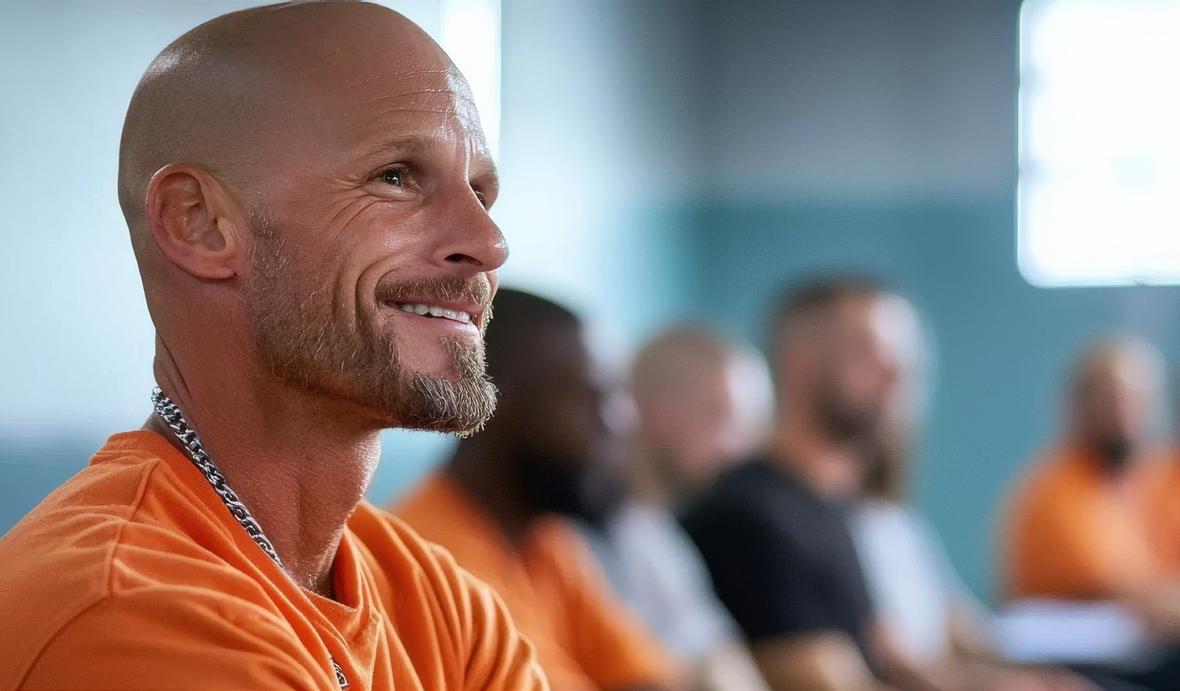
PAC’s Parenting Inside Out program at the Washington County Correctional Facility supports incarcerated parents and caregivers in building essential parenting skills and maintaining meaningful relationships with their children. Based on an evidence-based curriculum, the program offers weekly group sessions focused on effective communication, constructive discipline, and parent-child relationship development within a correctional setting.
years of experience in corrections and child services, the program integrates clinical expertise with practical strategies tailored to the needs of incarcerated parents and caregivers. Participants gain tools to navigate parenting challenges, sustain emotional connections with their children, and prepare for family reintegration.
The program operates two concurrent groups. Each group meets weekly for two hours over 12 weeks, serving up to 12 participants per session.
The Mobile Medication program provides critical support to adults in the community diagnosed with serious, chronic mental health conditions. Consumers must also meet one or more additional criteria: receiving case management or ambulatory services, experiencing recent inpatient admission or readmission due to medication non-adherence, managing a complex medication regimen, or requiring coordination of physical and behavioral healthcare.
The team focuses on consumer education, teaching individuals
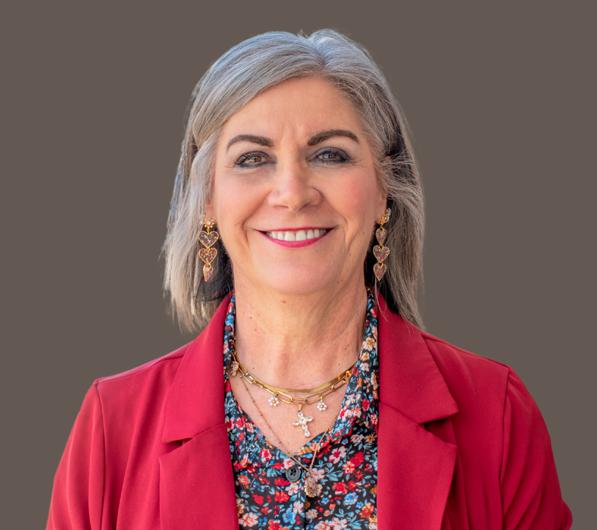
Maria Gerstel
After a distinguished career in social services, most recently serving as a PAC regional director, Maria Gerstel, who
about their medications, including their purpose, usage, and potential side effects. Staff work to identify and overcome barriers that prevent medication adherence and help consumers develop skills such as contacting pharmacies, communicating effectively with healthcare providers, and independently managing their treatment needs. The PAC Mobile Medication teams currently consist of a nurse and a mobile medication technician. Programs currently operate in Washington and Westmoreland counties.
By fostering these skills, the Mobile Medication team enhances each consumer’s ability to function productively within the community. Staff also collaborate with outside medical providers and specialty doctors to promote overall wellness and health.
The ultimate goal of the program is to increase and maintain medication compliance, reduce decompensation, and help prevent re-hospitalizations. Since the program’s inception, 37 clients have been served. Moving forward, the program aims to serve at least 20 consumers in each county.


retired one year ago, has returned to PAC in a new capacity as a member of the board of directors. She brings decades of experience and a strong dedication to the organization’s mission of expanding access to preventative services for youth, families, and older adults.
Maria’s journey with PAC began as a counselor, where she quickly became known for her compassion and commitment to those she served. Her dedication to community-based care guided her professional growth, eventually leading her to the role of
regional director. In that position, she helped countless families connect with essential programs and support systems in their communities.
"Expanding access to services, especially those targeting youth, families, and older adults, has always been my passion," Maria said. "During my tenure, PAC gave me the opportunity to assist families in navigating community-based programs. Serving on the PAC board allows me to continue supporting the important work being done to improve lives."
As a board member, Maria brings
practical experience and valuable insight to PAC’s leadership. Her return reflects a continued personal commitment to the organization and confidence in its mission.
PAC is proud to welcome Maria Gerstel back in this new role and looks forward to the meaningful contributions she will bring to the board of directors.
GJR in IN secured a four-year $24M contract with the Indiana Department of Child Services (DCS) to sustain and expand its Older Youth Services (OYS). GJR in IN also broadened its service footprint to include 54 counties, reinforcing its role as a leading provider of community-based and home-based services in Indiana.
In parallel with its growth in service delivery, GJR in IN advanced its internal capacity through the launch of a trauma-informed workplace (TIW) initiative. Supported by the Indiana Youth Institute (IYI), the initiative
In May 2024, GJR in IN was awarded a $10,000 Trauma-Informed Workplace grant through the Indiana Youth Institute’s Youth Worker Wellbeing Program to address vicarious trauma among youth workers and strengthen workplace wellness. In partnership with the Child Welfare Consulting Group, LLC, GJR in IN conducted a comprehensive organizational wellness assessment based on the Office for Victims of Crime’s Vicarious Trauma Toolkit. Results highlighted both organizational strengths, such as professional development and mission alignment, as well as areas for improvement, including staff wellness activities and leadership modeling of work-life balance.
provides all employees with access to mental health support and trauma-responsive leadership development. Following a successful first year, the organization secured renewed IYI funding to further its TIW efforts. GJR in IN also leveraged the second year of a workforce stabilization grant from DCS to issue retention and sign-on bonuses, stabilizing field-based staffing and improving continuity of care.
GJR in IN also continued to implement its Independent Living Preparation Program (ILPP) for youth ages 14 and 15 who are ineligible for state-funded OYS, as well as older youth in residential and clinical placements
who often experience service gaps. Supported by Lilly Endowment Inc., ILPP has provided critical transitional services for over 100 underserved at-risk youth. GJR in IN remains the only provider in Indiana delivering early and extended independent living preparation at this scale, addressing a longstanding gap in the state’s youth services continuum.
Beyond contracted programs, GJR in IN actively fundraises to support unfunded yet essential experiences for those served, such as milestone celebrations and recreational or educational events. These events help restore a sense of normalcy and belonging for children, youth, and families involved in the system.

These findings shaped a two-day training led by Elizabeth Skidmore, President of the Child Welfare Consulting Group. The training introduced evidence-based traumainformed frameworks, identified indicators of secondary trauma, and provided actionable strategies to foster psychological wellness, sense of belonging, professional growth, and resilience among staff. The initiative marked the beginning of a cultural shift to embed traumainformed principles in client services and throughout the organization’s workplace culture.
In 2025, GJR in IN was awarded a second Trauma-Informed Workplace grant to complete the final phase of its two-year transition. This phase includes developing a customized curriculum based on The Sanctuary Model and launching the Employee Wellness Enhancement Program to address wellness gaps identified in the 2024 assessment. Leadership staff will be trained to deliver ongoing internal education and wellness programming, ensuring a sustainable, employee-led TIW infrastructure.
Together, the 2024 and 2025 TIW projects represent a strategic investment in the well-being of GJR in IN’s network of over 70 field-based employees, serving approximately 1,400 clients across 54 Indiana counties. The initiative promises to position GJR in IN as a model of trauma-informed excellence within the broader GJR affiliate system.
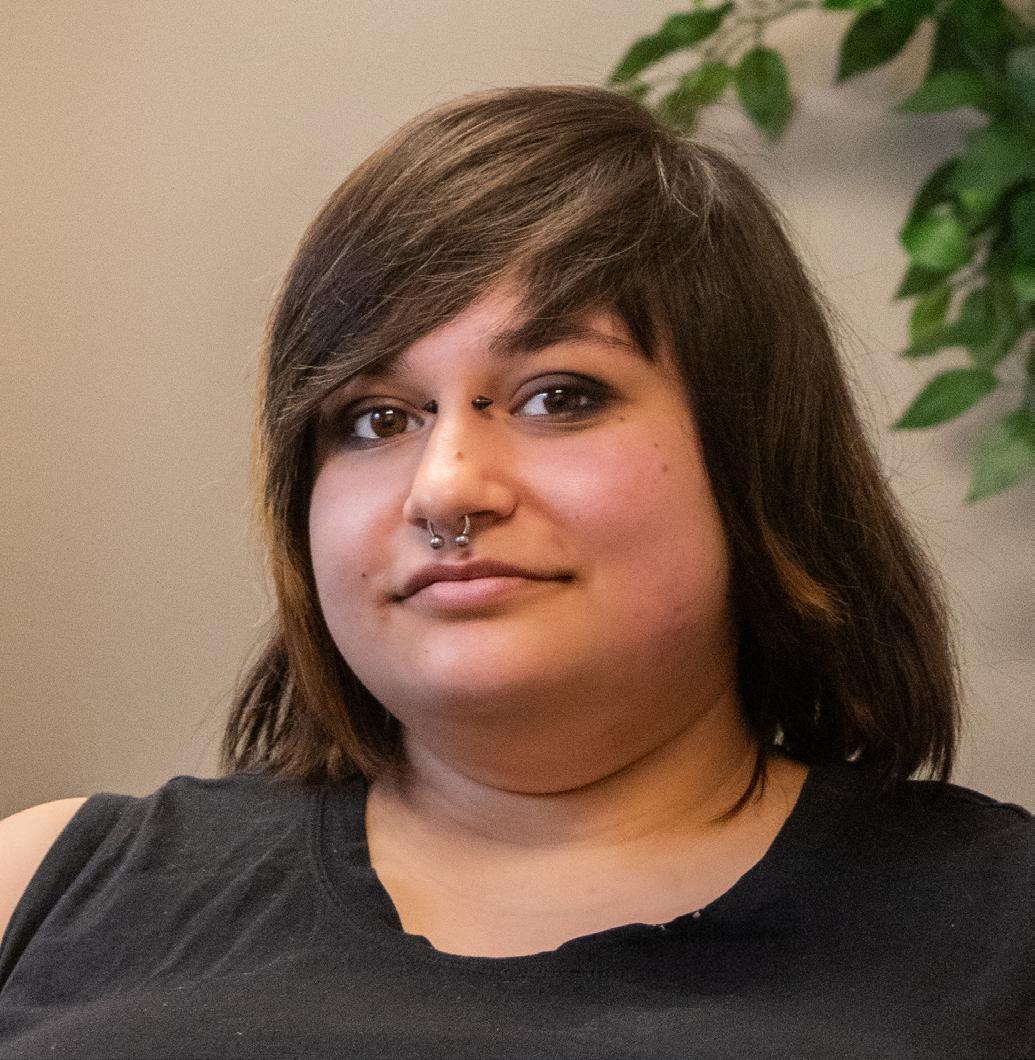
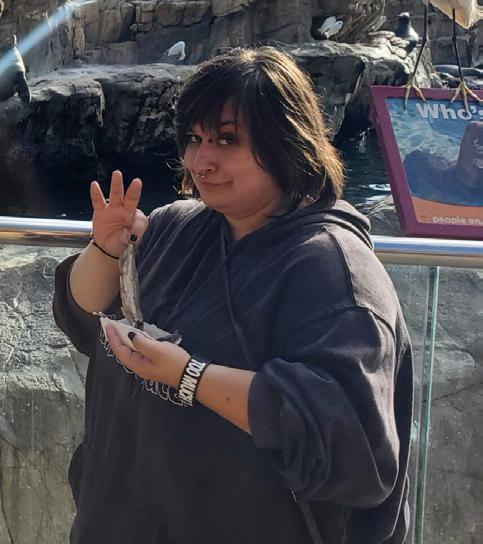

In the often-overlooked world of foster care, stories like Razzy Floyd’s illuminate the strength and resilience of youth, as well as the power of compassionate support.
Razzy’s early life in Columbus, Indiana, was filled with instability and hardship. Raised by a single mother battling addiction, she moved frequently and often faced uncertainty around basic needs. Despite the chaos, love within her family remained a grounding force.
Entering foster care brought fear and apprehension, but Razzy’s experience challenged those expectations. After a problematic initial placement, she was welcomed into the home of Kurt and Kelly Lambert. There, Razzy found safety, encouragement, and the freedom to explore her passions in art and theater, which are interests she had long set aside.
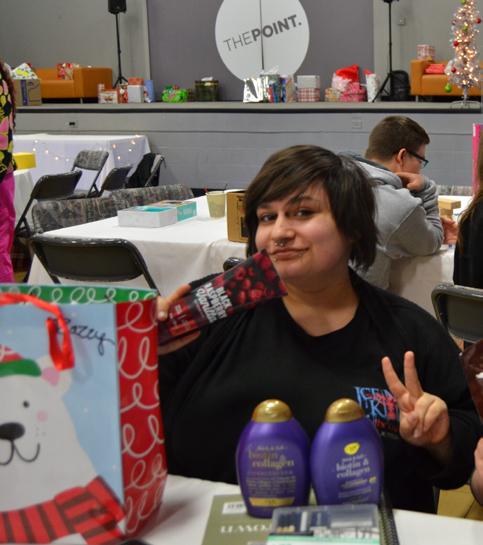
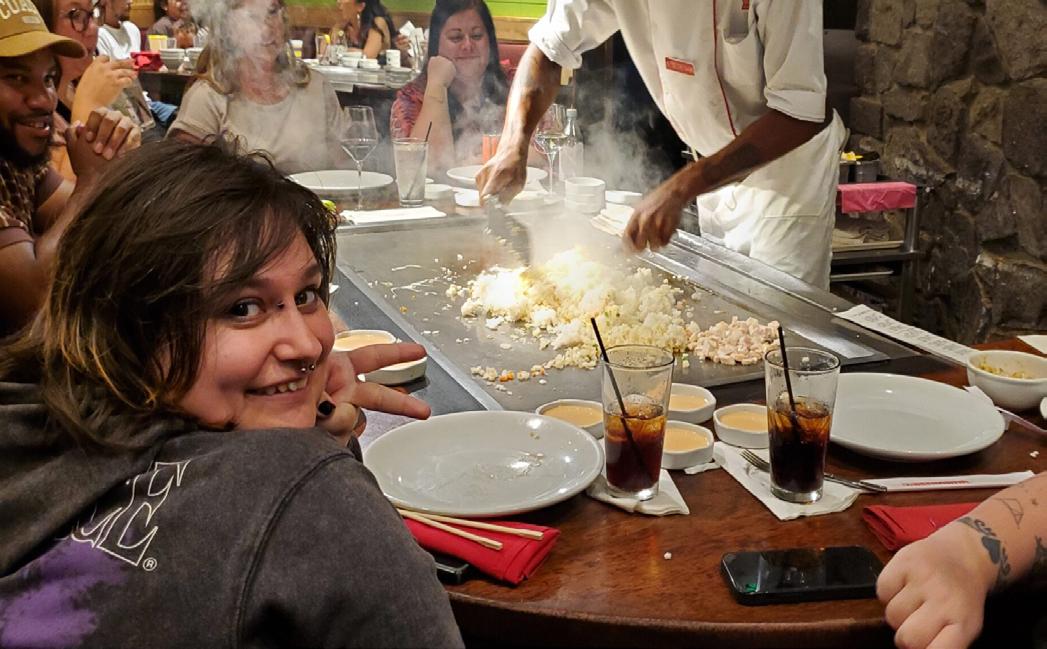
A significant turning point came through GJR in IN’s Collaborative Care program. There, Razzy learned essential life skills, including financial literacy, job readiness, and emotional resilience. GJR in IN became more than a support system; it became a community that nurtured her growth and independence.
Now, as she prepares to return to school and secure her first apartment, Razzy reflects with gratitude on the people and programs that helped her thrive. Her story is a powerful reminder of the potential that can be unlocked when foster youth receive understanding, stability, and opportunity.
Razzy believes that organizations like GJR in IN are lifelines. They show that foster care doesn’t have to be a place of fear; it can be a launchpad for success. By continuing to support these programs, we can help ensure that more youth like Razzy are given a safe space and a chance to build a bright future.


Better Together remains one of the most impactful complementary services that GJR in IN offers, alongside its contracted programs. Developed in response to the observed lack of typical childhood experiences among system-involved youth, such as birthday celebrations, holiday gifts, sporting events, and amusement park visits, Better Together eliminates financial barriers to offer disadvantaged youth opportunities to be kids.
In 2024, GJR in IN hosted 42 events across 16 counties, reaching over 500 participants. Activities included visits to pizza parlors, arcades, bowling alleys, pottery studios, aquariums, and zoos, with haunted houses and Hibachi restaurants emerging as universal favorites. The program also featured youth-led book club discussions to enrich youth experiences.
Better Together is fully supported by a GJR in PA alumnus through the Julann Brugger Scholarship Fund. Encouraged by the program’s success in 2024, the donor has increased support to $10,000 for 2025, ensuring another year of meaningful experiences and joyful memories for the youth GJR serves in Indiana.
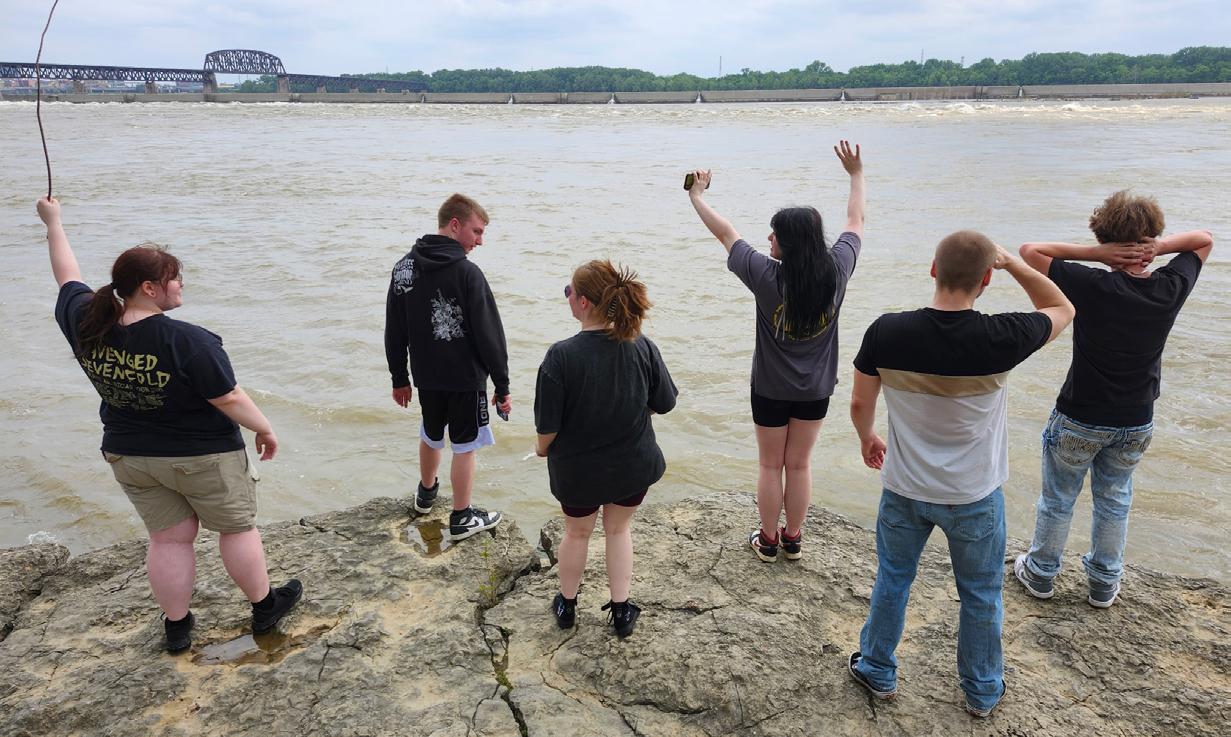






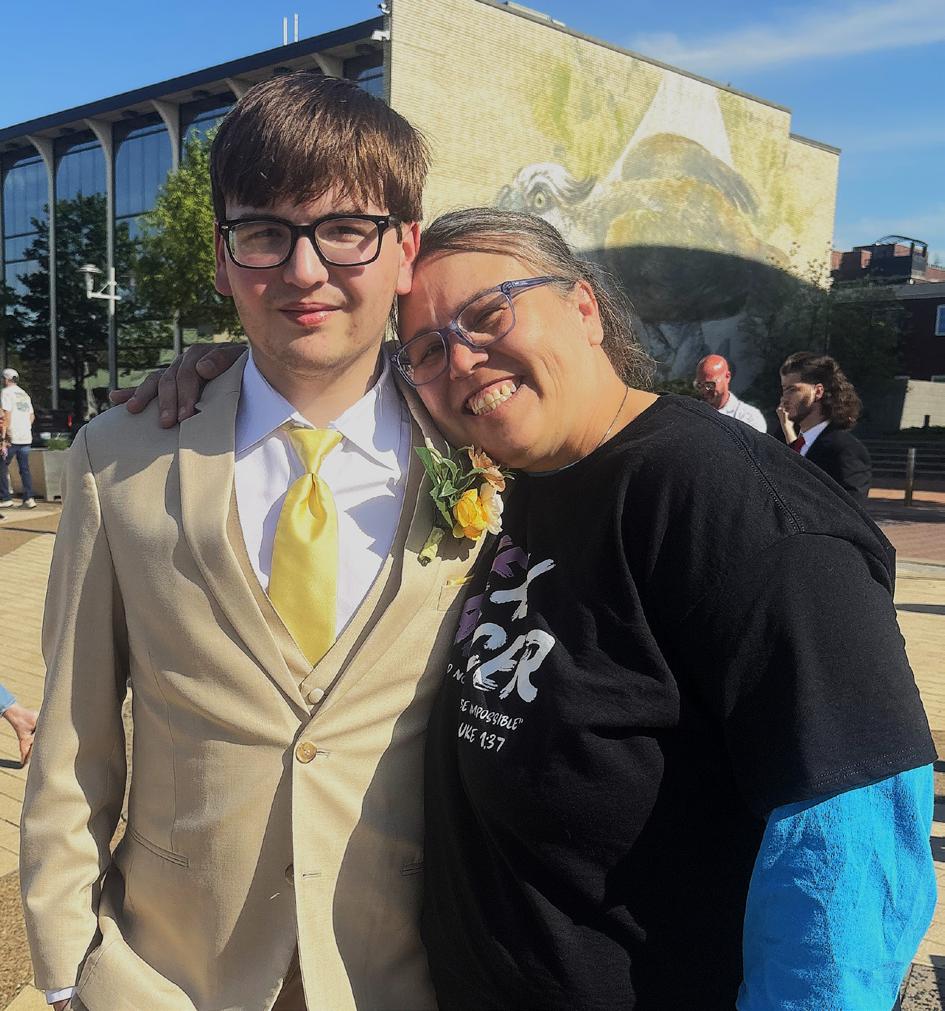
Marayna Sanders
Daughter of Glen Sanders, Fine Arts Director (GJR in PA)

Jackson Carpenter
Son of Jody Carpenter,
OYS Independent Living Coordinator 2 (GJR in IN)

Evangelina Carpenter
Daughter of Cheyanne Medellin, Older Youth Services Case Manager (GJR in IN)
The George Junior Republic and Affiliates We Never Stop Believing Scholarship was established in 2022 to assist the natural, step, or adopted children of employees up to age 21 with post-secondary undergraduate educational expenses. This annual scholarship will be provided to full or part-time students accepted to an accredited college, university, community college, or career and technical school. Congratulations to this year’s recipients!
Through online nominations, GJR employees have the opportunity to nominate a peer for their hard work and effort. With a focus on GJR's new mission, vision, and values statements, selected employees highlight GJR's values.
Congratulations to this year's recipients!

GJR in PA
Derrick Bailey, Admissions Coordinator
DaTrice Burns, Long-Term Structured Residence Case Manager
Jasyntah Mockabee, Treatment Team Coordinator
Coty Gander, Treatment Team Coordinator
Shawn Catterson, Driver
Elisa Fazzolare, Treatment Team Coordinator
Tom Rohan, Campus Supervisor
Cecil Parsons, Maintenance Worker
Mikayla Bloodsaw, Behavioral Health Technician
Vaughn Chesters, Treatment Team Coordinator
Amadeus Vanderveer, Residential Manager
Raelyn Reisker, Campus Supervisor
Patricia Surrena, Custodian
Clinton Hoffmann, Case Manager 2
Chelsey Gindling, Case Manager 2
Alexis Zirkle, Therapist
Sydney Brewster, OYS Independent Living Coordinator 2
Paige Huffman, Therapist
Michael Edwards, Case Manager 2
Eryn Mitchell, Team Lead
Tori Matanich, OYS Independent Living Coordinator 2
Bev Meade, Administrative Assistant
Juanita Sciscoe, Case Manager 2
Candace Phelan, Team Lead
Connie Reed, Administrative Assistant
Amber Strong, Mental Health Professional
Viviana Marrero, Mental Health Professional
Savanna Frumkin, Mental Health Professional
Audra Gardner, Regional Supervisor
Tige Anderson, Mental Health Worker
Peggy Beatty, Compliance Technician
Bethany Butler, Mental Health Worker
Sarah Alexander, Mental Health Worker
Denise Sachar, Regional Supervisor
Kiersten Stinbacher, Mental Health Worker
Denise Bump, Mental Health Worker


Aaron Michael Cangey Memorial Foundation
AJAX Commercial Cleaning, Inc.
Allegheny Mineral Corporation
Larry Archinal
In FY24-25, GJR and Affiliates received over $700,000 in support from donors and grantors committed to advancing its mission. Through new and ongoing grants, in-kind donations, and cash contributions, these partners helped strengthen programming and enhance operations across the organization. On behalf of the board of directors, its 400+ employees, and over 3,000 children, youth, adults, and families served annually, GJR and Affiliates proudly recognize the generosity of these benefactors and their vital role in its ongoing impact and success.

Dorothy E. Bellhouse
Edward T. Berti
Buhl Regional Health Foundation
Lynn Calhoun
Church of the Beloved Disciple
John Davies
Department of Community and Economic Development
Laurie Dinkel
James P. Epstein
Erie Arts & Culture
Fossil Rock Services
Philip W. Gasiewicz
Ginny's Peeps
Glenn O. Hawbaker, Inc.
GVC Mortgage
Howard and Gwen Haglund
HUB International Three Rivers
Indiana Department of Child Services
Indiana Youth Institute
Jeffersonville Community Homeschool Group
Johnson County (IN) Drug Free Community Fund
Jill and Paul Jones
Kroger
Lilly Endowment, Inc.
Paula Louise
Mercer County Adult Education Center
Brenda K. McBride, Esq.
McGill, Power, Bell & Associates, LLP
Memphis Christian Church
Moores Hill Church of Christ
Mt. Nebo Presbyterian Church
Olive Leaf
Mike O'Mahony
Charles and Connie Pack
Pennsylvania Commission on Crime and Delinquency
Pennsylvania Department of Education
Jacqueline Petrie
The Pew Charitable Trusts
Pham Giving Fund
PNC Bank, N.A.
Rite Aid Healthy Futures
Sharp Properties
Rex and Virginia Smith
Starbucks
Richard R. Stevenson
Sycamore Coffee
Texas Roadhouse
The Pittsburgh Foundation
T.J. Kavanagh Foundation
Roger K. Towle
Transformation Church
Megan R. Troxell
United Concordia Companies, Inc.
Wellspring Church
Westmoreland County Department of Human Services
Dr. Betty J. White
Gayle Young

Change the lives of those we serve and donate today!